China
The UK Condemns China’s Treatment Of Uighur Minority
Published
4 years agoon
UK’s Labour Party has said that the government should freeze the assets of Chinese officials because of their country’s persecution of the Uighur people.
The shadow foreign secretary, Lisa Nandy, said that legislation should be introduced by the government and used against any officials involved in human rights abuses.
“There’s one thing that the government could do in relation to helping the Uighur people at the moment and that is to freeze the assets of any of the Chinese officials involved in those human rights abuses over in China,” she told Sky News.
“We’ve got new legislation now; we’ve been pushing the government to do that for two years. The UK should not be a haven for people who abuse human rights overseas.”
British Foreign Secretary Dominic Raab said on Sunday it was clear the Uighur minority in China had suffered abuses of their human rights.
“It is clear that there are gross, egregious human rights abuses going on, which is why in Geneva at the UN we raised this with 27 partners … to call out the government of China for its human rights abuses of the Uighurs, also of Hong Kong,” Raab told the BBC’s The Andrew Marr Show.
The government announced asset freezes under the new legislation on July 6. This legislation targeted 20 Saudi nationals, 25 Russian nationals, two Burmese military generals, and two organizations with links to North Korean forced labor camps.
Many were concerned with the lack of Chinese officials among those whose assets were frozen, especially when taking into consideration the growing concern about repression by authorities in Xinjiang. Downing Street also has concerns about China’s involvement in UK infrastructure, such as its nascent 5G telecommunications network.
Several human rights groups have said that the recent Chinese policy in the long-running conflict with the Muslim minority in Xinjiang has involved mass surveillance and imprisonment without the proper procedure of over one million people in “re-education camps”.
China says its policies are in response to political extremism and the threat of terrorism, but the ever-growing reports of those camps actually being used as forced labor camps leave the world wondering about what actually is happening there.
Liberal Democrat foreign affairs spokesperson, Alistair Carmichael, said: “The images we have seen in recent days are harrowing and inhuman. The government has a duty to take a lead and do all it can to save the Uighur people.
“We must be clear about what is happening here. The Chinese government is engineering a genocide. The foreign secretary must come before MPs before the recess and set out what urgent actions the government will take, both on an international level and unilaterally.”
Dominic Raab said of the UK’s relationship with China: “I think we need to be very careful in our dealings. On the one hand, we want a positive relationship with China – there are all sorts of areas and scope for cooperation, not least on investment and trade and things like that, but also on climate change.
“Equally, with various efforts – cyberattacks, the resilience of our vital interests like 5G – and when it comes to standing up for our values as we’ve done very clearly on Hong Kong … we will always make clear our position on those key interests and values to China. That’s the calibrated approach we’ll take.”
Raab said “there won’t be business as usual” and the UK would be “clear-eyed” in its dealings.
He stated that it was clear there were ”gross, egregious human rights abuses” being perpetrated against the Uighur people.
“We are working with our international partners on this. It is deeply, deeply troubling,” he said.
“The reports of the human aspect of it – from forced sterilization to the education camps – are reminiscent of something we have not seen for a long, long time.
“This is from a leading member of the international community that wants to be taken seriously and in fact who we want a positive relationship with. But we cannot see behavior like that and not call it out.”
On the issue of sanctions, he said: “It’s not quite right as Lisa Nandy suggested that you can just willy-nilly decide to sanction X or Y. You have to, as we have done with Magnitsky, with the Rohingya, with North Korea, build up an evidence base and that takes a long time to do because you have to identify accurately and responsibly those involved.”
China’s ambassador to the UK, Liu Xiaoming, said any measures to sanction officials would be met with a response.
“We never believe in unilateral sanctions. We believe the UN is the authority, and has the authority to impose sanctions. If the UK government goes that far to impose sanctions on any individuals in China, China will certainly make a resolute response to it,” he told the BBC.
“You’ve seen what happened between China and the US – they sanction Chinese officials, we sanction their senators. I do not want to see this tit-for-tat in UK relations. I think the UK should have its own independent foreign policy rather than the dance to the tune of Americans like what happened to Huawei.”
On the issue of Uighur persecution, the ambassador told the broadcaster: “The so-called western intelligence agencies keep making up this false accusation against China, that 1 million Uighurs have been persecuted. Do you know how much populations Xinjiang has? Forty years ago it was four or five million. Now it’s 11 million people – and people say we impose ethnic cleansing, but the population had doubled in 40 years.
Responding to questions about forced sterilization, he said: “I can easily refute this accusation. There’s some small group of anti-China elements working against the interests of China, but the majority of people in Xinjiang are happy with what is going on. In the past three years, there’s been not a single terrorist attack in Xinjiang.
“People can enjoy a harmonious life. Uighur people enjoy peaceful, harmonious coexistence with other ethnic groups of people. The Uighur people are just one small portion of the Chinese population even among the Muslims – but the majority of them are living happily and peacefully with other ethnic [groups]. The success of China is we have a very successful ethnic policy; we treat every ethnic group as an equal.”
Speaking on other issues, Ms. Nandy said her party had “got it wrong” in its earlier response to concerns about the Russian government.
“By prevaricating about issues like [the poisoning in] Salisbury, we let the Tories off the hook. I strongly believe that that has to change and that we have to have a much more strategic approach to Russia,” she said.
For more Read
You may like
-




Israel’s intense Practices to Uproot the Palestinians in Jerusalem
-






Christian militia infiltrate Lebanon
-






Argentina wins the World Cup; are there any other winners?
-

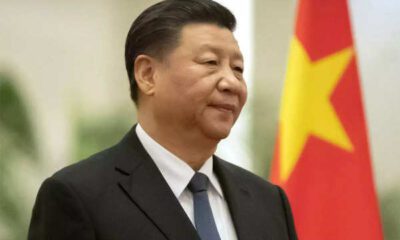


What Xi Jinping Aims, Acquires – The Return of Persistent President
-




Ascendancy of extreme Jewish fascism seen as main outcome of latest Israeli elections
-




Sabra and Shatila: A wound that won’t heal
China
China’s Growing Foothold in the Middle East -The Rise of a New SuperPower
Published
1 year agoon
February 28, 2023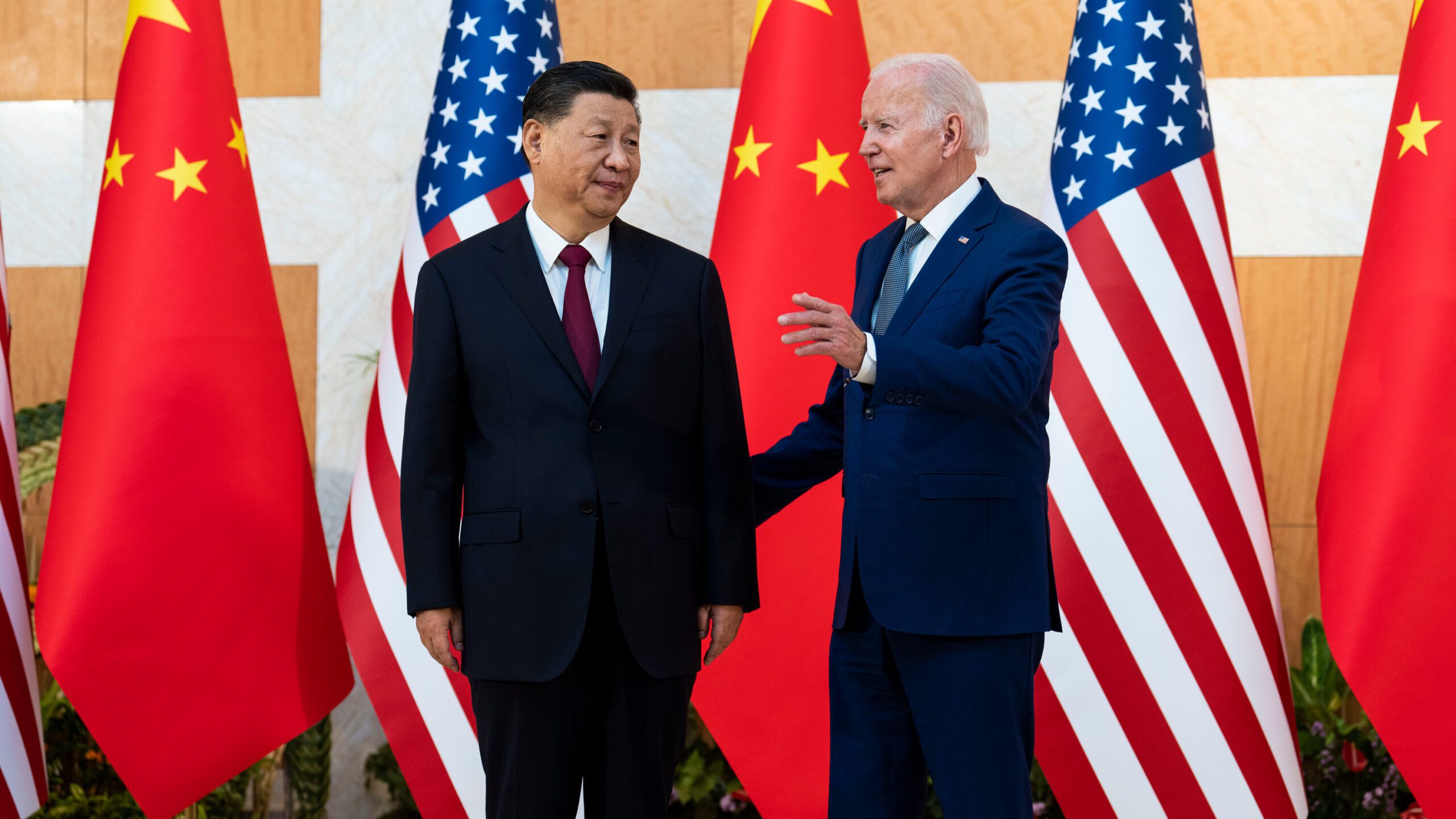

Overcoming the setback of the COVID pandemic, China is well on its way to establishing its foothold as the new superpower. And the most recent of its interest – The Middle East.
After trapping under-developing countries in South Asia and Africa in its debt trap, the dragon is searching for a new ally. An ally with equal resentment with the west and who can support China is becoming the next America, hence Saudi Arabia.
The Glamorous Welcome of President Xi Jinping on the Middle Eastern Soil
Saudi Arabia rolled out the purple carpet when Chinese President Xi Jinping visited Riyadh in December 2022.
Xi Jinping’s journey to Saudi Arabia is his first since 2016, and it is only his third trip abroad since the coronavirus outbreak started. Chinese President Xi Jinping was in Saudi Arabia for a three-day visit that made dozens of agreements for trade, technology, and the economy.
The timing of Xi’s three-day trip to Saudi Arabia is a bit perplexing. The organization of oil-producing countries’ refusal to boost output and the West’s decision to cap the price of Russian oil may indicate that China, Saudi Arabia, and Russia have aligned anti-Western policies.
Considering the warm welcome of Xi Jinping by Saudi Crown Prince Mohammed bin Salman (MBS) and a number of agreements and summits heralded, the White House urged – China’s efforts to sway world events are “not favorable” to the international system.
According to a US spokesperson, the United States is aware of China’s efforts to increase its global influence. Moreover, the USA is well aware that the Middle East is undoubtedly one of those areas where China wishes to expand its influence.
Beijing’s focus on Riyadh may concern the US and its western allies as China is improving its relations with Middle East countries, which are growing further in weapon and oil supply.
Read Next: How China is Engulfing Poor Nations into its Vicious Debt Trap
The $30 million Deal with the New Superpower
The signing of 35 investment agreements worth $30 million between China and Saudi Arabia has dramatically improved the two nations’ commercial ties.
Saudi Crown Prince Mohammed bin Salman and Chinese President Xi presided over the signing of the agreements. The first was an alignment plan between the nations’ Vision 2030 and the Belt and Road Initiative.
Moreover, Prince Abdulaziz bin Salman, the energy minister of Saudi Arabia, and He Lifeng, the head of China’s National Development and Reform Commission, signed a memorandum of understanding on hydrogen energy.
Notably, Chinese cooperation in nuclear energy, security, space, and technology was the highlight of all agreements. China is fostering this relationship with Saudi Arabia, in the region that was formerly under American influence.
During the three-day visit to Saudi Arabia, President Xi addresses a speech in the Saudi capital of Riyadh. The leaders and representatives from the six Gulf Cooperation Council nations – Bahrain, Kuwait, Oman, Qatar, Saudi Arabia, and the United Arab Emirates were present.
China is one of the biggest oil importers from Saudi Arabia, and the President indicated an unorthodox view during this speech. Mr. Xi specified using the Shanghai Petroleum and Natural Gas Exchange to settle oil and gas contracts in Chinese currency.
Crude oil, typically valued in US dollars, is exported by Saudi Arabia more frequently than any other country. Moves away from the US dollar could weaken the dollar’s position as the world’s reserve currency. However, Saudi Arabia is unlikely to make significant changes because it pegs its currency to the dollar.
China and Saudi Arabia both hailed Mr. Xi’s visit as a historic occasion as the relations that were once limited to oil-based were extended into sales, technology transfers, and infrastructure projects.
The Pressure on the USA in the MiddleEast
Due to deteriorating relations with the US and other Western countries, China seeks to strengthen ties with Middle Eastern nations during Xi’s visit. The links between China and Saudi Arabia are hurting the USA economically and globally.
Saudi Arabia has been a loyal ally of the US for a long time. But recently, its connections with China have significantly created pressure on the USA.
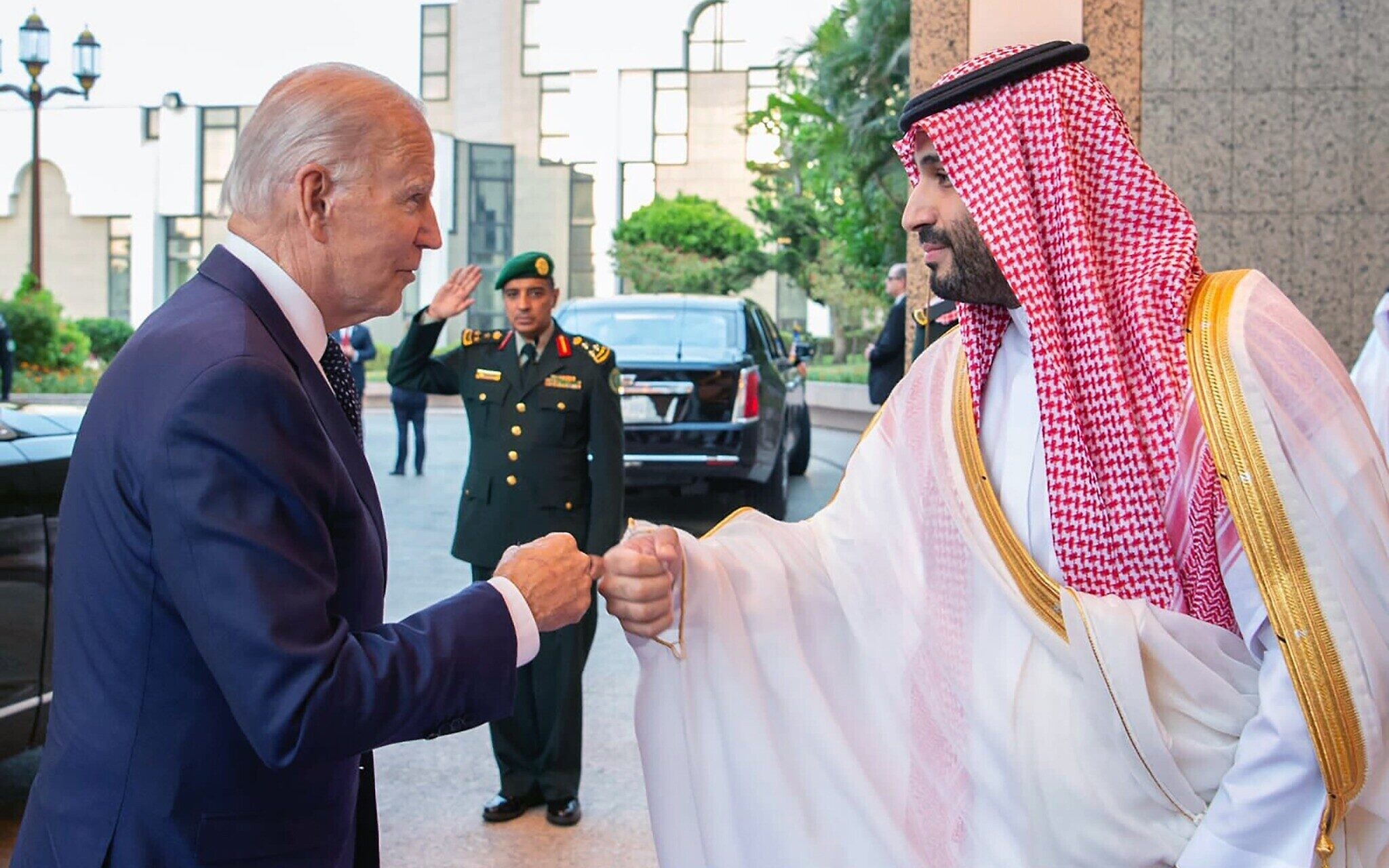

Joe Biden visited Saudi Arabia in the summer to calm skeptical friends and reaffirm American engagement in the Middle East. The President ensures the leaders of Arabs in Riyadh that the United States won’t withdraw and let China, Russia, or Iran fill the void.
But he was unable to persuade the Saudis to increase oil output. Instead, Arab would shortly spearhead a plan to reduce oil production by almost 2 million barrels per day as part of an agreement with Russia.
Along with Saudi Arabia, the US has strained ties with China. Saudi Arabia and China have also adopted stances about the Ukraine War that differ from those of the West.
Both parties have refrained from backing sanctions against Russia. Riyadh has repeatedly maintained that Moscow is a significant energy-producing partner who needs to be engaged on OPEC issues.
UAE: Growing Influence of the New Superpower
In the United Arab Emirates, relatively youthful and forceful leaders are now in charge of the Gulf. Although these nations still significantly rely on the United States for their needs in terms of national security and the sale of weapons.
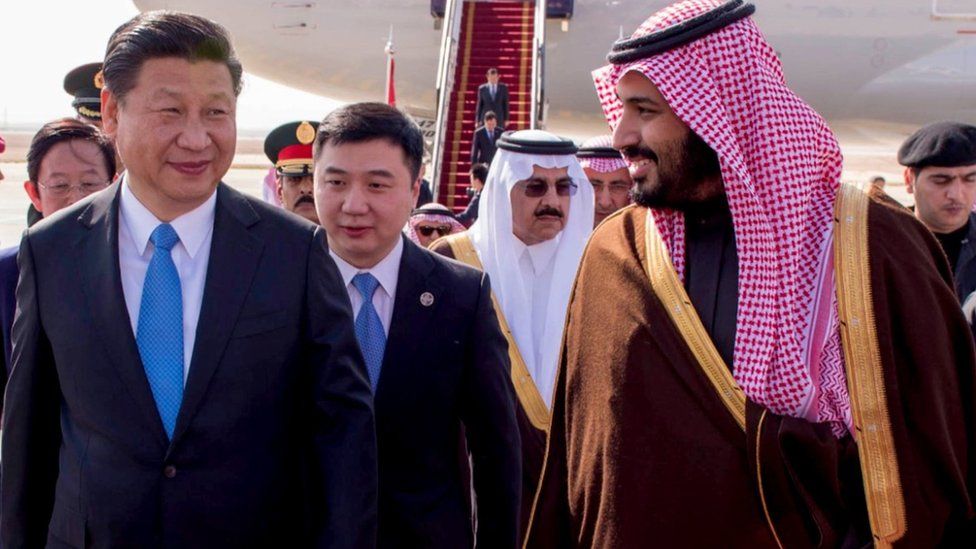

Although the entry of China into the Middle East has raised concerns and competition among western countries, the United Arab Emirates is taking advantage of the competition.
Moreover, Prince Mohammed wants to reduce Saudi Arabia’s reliance on oil exports by diversifying the country’s economy. He wants to develop a new Saudi military industry as part of a bigger plan to increase the kingdom’s independence and economic might.
Prince is also planning to diversify the country using new technologies and improve internal infrastructure innovatively. China is regarded as a crucial ally in developing the nation’s defenses and infrastructure since it can offer the necessary expertise and technology.
On the other hand, China’s priority is energy, which depends on a steady flow of fossil fuels to function. China has been alert since price fluctuation due to Russia’s invasion of Ukraine this year. As well as a Chinese energy crisis last year resulted in blackouts that shut down companies and towns.
China is therefore acting wisely by trading steady fuel exports for technology, nuclear energy, and space technology with Saudi Arabia.
Nevertheless, Xi’s trip to Saudi Arabia showed that Saudi Arabia and the other Arab nations have options. And they will keep using their growth strategy for international stakeholders to their advantage.
China to Arrest USA Autonomy over Saudi Arabia?
Saudi Arab officials have already said that they have never supported polarization. Saudi Arabia is only striving for the nation’s interest; their interests are in the West and the east too.
However, the young lead of Saudi Arabia is searching for an alternative to enhance the nation’s economy without relying on oil exports. And China has a good chance to arrest US autonomy over Arab countries by providing all required help.
The relationship between Saudi Arabia and the US as it stands right now is fickle. However, China and Saudi Arabia’s strong alliances make it the ideal time for China to seize the chance to replace the United States as Saudi Arabia’s primary trading partner.
The new relationship will not only weaken the USA’s influence in the region, but it will also hurt the US superpower’s global image.
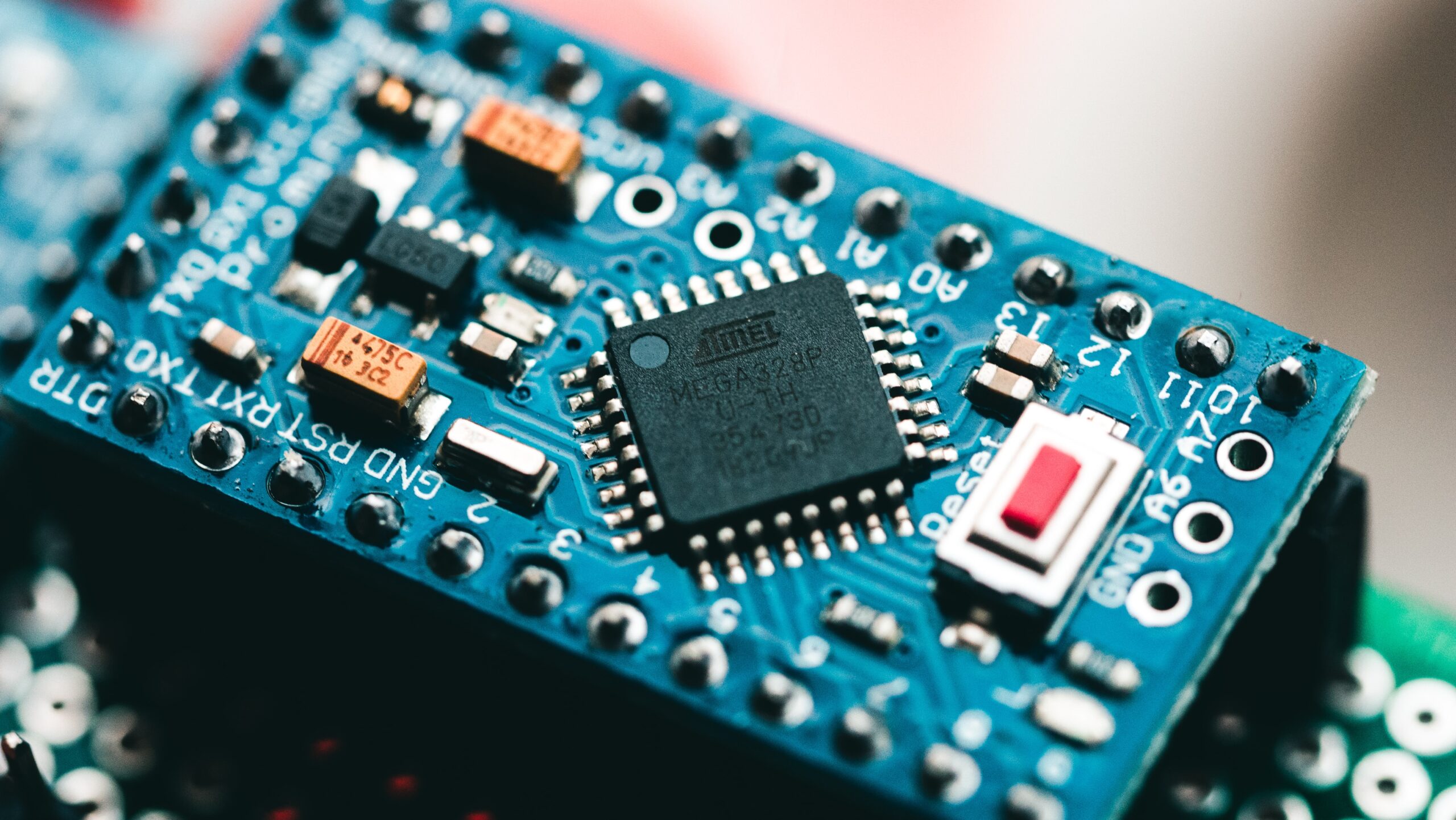

The world is running out of computer chips. And due to the unprecedented shortage of electric chips and semiconductors, a new microchip war is brewing between the two largest manufacturers: India & China.
But, who is winning it? Here’s an explainer:
The Semiconductor Crisis: Explained
Semiconductors are used to make integrated circuits. These microchips are the lifeblood of all electronic appliances, from smartphones, laptops, and gaming consoles to supercomputers and modern weapons.
Powering the technological evolution over the last two decades, the demand for semiconductors has skyrocketed. However, the 2020 pandemic halted the chips’ manufacturing, sparking a global semiconductor crisis.
The crisis was so bad that Apple lost 6 billion dollars in revenue, Maruti had to cut down 40% of its production, and Mahindra had to cut down 20% of its production. Due to chip shortages, the auto industry has already lost 100 billion dollars in revenue.
Even though production has resumed, manufacturers are still unable to fill out the shortage caused by COVID.
So, why is there a sudden shortage of semiconductors and their impact on different industries?
The Rush of people with Electronic Gadgets
The first reason for the shortage is that the industry had already been growing rapidly and was already on the brink of shortage. According to the semiconductor industry association, more than 100 billion integration circuits are used daily worldwide.


The market is so huge that the industry’s biggest players, including Intel, Micron, Nvidia, and Qualcomm, can’t keep up with the demand, given the enormous size of the market.
The Microchip War & Impact of Covid-19
Lockdown-induced online work dramatically increased demand for electronic devices. But with the manufacturing and transportation services primarily halted, demands outstripped supply.
Another the reason why the shortage is so difficult to recover is that manufacturing a microchip typically takes more than four months. Additionally, microchip manufacturers need giant factories with dust-free rooms, multi-million-dollar machines, molten tin, and lasers.
Since manufacturing cannot be increased on such short notice, the wait times for chips increased alarmingly. The situation has worsened so severely that the waiting time spiked from 11.8 weeks in September 2019 to 21 weeks in August 2021.
Consequently, the market value of semiconductors grew over 20% ($600 billion) in 2021.
Hence, the radical difference in supply and demand has turned the table, and this is why companies from various areas across the world from various sectors have started facing production issues.
The four major industries that have furiously faced the heat of crisis are auto, LED lighting, consumer electronics, and the appliance industries.
What is the position of India in the semiconductor market?
Despite homing big heads like Intel, Micron, and Samsung housing and R&D centers in India. India doesn’t have a significant chip manufacturing industry.
When looked at India’s semiconductor trade situation, India became the 13th largest importer of semiconductor devices in the world in 2020, with $2.38 billion in semiconductor device imports.
And now comes the story’s climax behind the semiconductor war between India and China.
The terrifying part is that about 68.1% of India’s semiconductors were imported from China in 2020. Followed by 40% in and 26% from Hongkong in 2022.
So, what is India doing to fix the situation and reduce its dependence on China? And How is India indirectly in the position of war with China in the semiconductor industry?
India Vs. China: The Microchip War
The roots of India & China’s microchip war can be traced back to the Quad Summit.
During the quad summit conference held by US president Joe Biden on the 24th of September 2021 debated on how to tackle several aspects of economic challenges that come through different countries’ economic development. And one such aspect was the semiconductor shortage in the world.


Long story short, chip manufacturing is a complex process requiring multiple steps. So if each country sets up five divisions for five different processes, it is both costly and time-consuming.
Because of this, India, Australia, Japan, and the US have chosen to work together to execute only those processes that best suit their strengths while transferring the remaining ones to other nations.
That means the US will design the semiconductor; Japan will provide resources to make semiconductor that is raw materials and chemicals like silicon wafers and ICs. While Australia will come up with an electronic supply chain as it has access to critical materials and advanced mining.
Meanwhile, India has many skilled engineers and laborers for cheap assembling and manufacturing.
So, in the quad summit US, Japan, Australia, and India joined hands to build a robust semiconductor supply chain based on their strength to eliminate their dependence on China, Hongkong, and Taiwan.
Thus India’s INR 76000 cores production incentives program is indirectly threatening Chinas mega semiconductor chip industry.
Will the Microchip Program Really Benefit India?
The US is very well aware of future weapons and is acting smartly to overcome China in supercomputing and AI tech. That’s why the US wants semiconductor technology to be kept away from the hands of China.
Hence in October 2022 US banned all semiconductor exports to China. Alongside baning all the technologies that China can use against the US.
The US does not want China to develop weapons that may use against the US military. Consequently, fostering India to come up with semiconductor manufacturing to cut the wings of China in the field of making chips.
As discussed above, the US is king in designing the chips, but with sanctions on exporting any such technology from the US, China will face heat.
While the US has joined hands in the quad summit to design semiconductors for India, here comes the answer to that incentive program.
Is India Winning the Microchip Chip War?
Over the next two years, the Indian government plans to establish 20 semiconductor plants. To tackle the shortage of semiconductor Government of India has lined -up with attractive incentive support for companies engaged in silicon conductors, photonics, semiconductor packaging, compound semiconductor manufacturing, sensors fabs, and semiconductor design.
Moreover, India is also tying up with Taiwan and encouraging semiconductor companies to manufacture semiconductors in India by providing land at affordable prices for their setup.
India is in an overstated circumstance where it is a semiconductor-importing nation and is about to switch to a semiconductor-exporting nation. Here is some heat in China. And that sparks an unintentional semiconductor war between China and India.
China
What Xi Jinping Aims, Acquires – The Return of Persistent President
Published
2 years agoon
November 7, 2022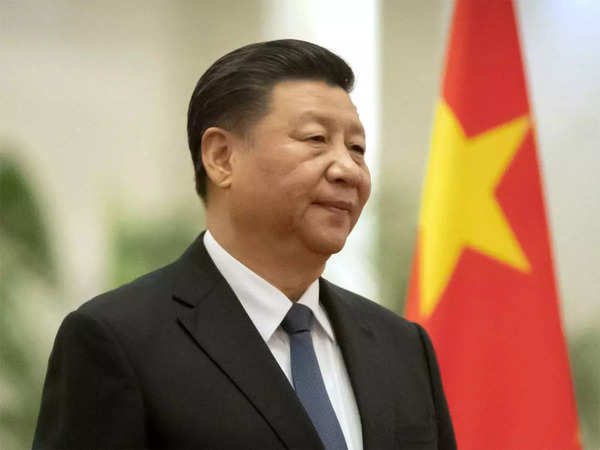

The results of China’s presidential election were known to the entire globe, and especially to the citizens of China. In the wake of the recently concluded party congress in Beijing, Xi Jinping has established himself as the kingmaker.
Xi Jinping was a driving force behind the repeal of presidential term limits in 2018, which opened the door for him to hold the position of leader for life if he desires.
Xi Jinping has broken the previous history by accepting a third term as party leader and significantly enhanced the concentration of power at the organization’s top.
But what does the persistent president’s return means for China and the world? Here’s a detailed insight.
“The World Development needs China…”. – Xi Jinping
After being elected as president of China for the third consecutive term in a closed-door election, Xi Jinping stated in his first address to the audience, “China cannot develop in isolation from the world. The world’s development also needs China,”
This quote shows how China focuses on its growth to have a more prominent global effect as a superpower.
Additionally, Xi Jinping, with the proceedings of the new term, wants to focus on achieving economic, industrial, and technological goals. That will give the Chinese economic and technological sector a competitive edge to become the next prominent superpower.
However, the road ahead toward leading China as a top superpower for Xi Jinping needs to be smoother. There are unresolved domestic problems, economic difficulties, and hostile international relations with neighbors like Taiwan and India. One of his biggest concerns would be his relationship with rival America.
Nevertheless, Xi Jinping continues to hold the view that despite numerous challenges in becoming a superpower, the Chinese people would always support and remain steadfast on this side.
“On the road ahead, no matter high winds, choppy waters, or even dangerous storms, the people will always be our most solid support and strongest confidence,”
President Xi Jinping
Two Countries Share a Friendship with ‘No Limits’ – Xi Jinping on Relationship with Russia
Mr. Putin will need China, said Alicia Garcia Herrero, head economist for Asia Pacific at Natixis. Russia must continue importing semiconductors from China to keep military, industrial, and civil needs operational.
Due to restrictions from US and European alliances, Russia has no choice but to export chips from China to operate for civil and military purposes.
Chip export from China to Russia more than doubled to roughly $50 million in the first five months of 2022 compared to a year earlier. While exports of other components like printed circuit boards also witnessed a double-digit percentage increase.
However, Xi Jinping raised concerns over the Russia-Ukraine war during his visit to an international summit in Uzbekistan with President Putin.
The focus, though, was on Putin’s oblique acknowledgment of Chinese “concerns” regarding the invasion.
“We highly value the balanced position of our Chinese friends when it comes to the Ukraine crisis,”
Putin, Russian Presidnt
Nevertheless, China has been cautious in its interactions with Moscow to avoid falling victim to any potential sanctions and alienating other nations, such as those in Central Asia, with China forging economic links.
Yet, with the ongoing trade across two borders of China and Russia, Xi Jinping’s thought over Russia’s invasion clearly — supports the friend firmly in the backend while criticizing and commending Russia in front of the world.
“Regard science and technology as our primary productive force” – Xi Jinping
The most potent president of decades in China, Xi Jinping, at the opening of the meeting, straight away displayed China’s powerful ambitions and reliance on science and technology.
Violating a tradition that had been in place for 40 years, six out of politburo’s 25 members now have a background in science. Compared to just one person in the previous politburo, who had no members with education or experience in science or technology.
And there was a significant turnaround of the party’s top leadership after Xi Jinping was reinstated as general secretary for a third term.
Xi Jinping’s choices emphasize building up Beijing’s powerful military and technological capabilities so that China can defend or resist any pressure from the US and its allies, especially when it comes to enforcing territorial claims over Taiwan.
Moreover, China is also expected to prioritize research and development in aerospace and space science. To boost the aerospace and space science workforce, China aims to bring back Chinese scholars who are currently abroad or hired by foreign researchers.
Such initiatives and endeavors unequivocally show China’s priority for science and technology in the years to come. In 2021, China spent around 2.8 trillion yuan, 2.4% of China’s GDP, on Research and Development.
However, the current five-year plan for the nation sets a target of an annual increase of more than 7% every year.
“China must strengthen the unity of all ethnic groups.”
As western countries continue to charge Beijing with committing genocide against the predominantly Muslim Uyghur population in the region, China’s president, Xi Jinping, visited Xinjiang for the first time in eight years.
A supra-governmental group subject to US sanctions, the Xinjiang Production and Construction Corps (XPCC) was inspected by the president, who lauded the organization’s “excellent progress” in reform and growth.
Nevertheless, President Xi Jinping’s visit to the Xinjiang area comes out as more deliberate than opportunistic as the ruthless tactics employed by the Chinese government against the Uyghur minority in the northwest Xinjiang province have been brought to light by a cache of leaked documents and images.
Uyghurs are allegedly forced to unlearn their culture and religion via a network of institutes run by Chinese authorities in the area. The exposed documents state that
China has a shoot-to-kill policy for Uyghurs who attempt to flee the internment centers. The materials also go against the Chinese government’s claim that the Uyghurs willingly attend the facilities.
However, China’s Foreign Ministry has rejected the allegation and said the Media is spreading lies and rumors.
Though China was seriously condemned by the UN and western countries, knowing such ruthless behavior of China towards minorities is nothing new. Such criticism compelled President Xi Jinping to travel to Xinjiang, a region he hadn’t been to in eight years.
However, the future of the oppressed Uyghur Muslims and other minority communities under Vi Jinping’s third term is still uncertain.
Read More: Modern Uyghur ‘Genocide’ in Xinjiang China
Trending
-



 Featured9 months ago
Featured9 months agoWorld passively watching as Israel perpetrates open-ended massacre in Gaza
-



 Featured10 months ago
Featured10 months agoIsrael is Hiding Crucial Demographic Facts About Palestinians
-





 Featured2 years ago
Featured2 years agoArgentina wins the World Cup; are there any other winners?
-



 Featured4 years ago
Featured4 years ago“Do Not Waste Water Even If You Were at a Running Stream” Prophet Muhammad
-



 Featured3 years ago
Featured3 years agoHistory of the Ottoman Empire
-



 Featured10 months ago
Featured10 months agoMuhammed: The Greatest Man to walk on Earth
-





 Featured2 years ago
Featured2 years agoChristian militia infiltrate Lebanon
-



 Featured4 years ago
Featured4 years agoFriendship is a Way For Jannah
